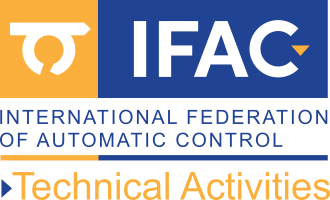Address:
Department of Electrical and Computer Engineering
2369 AV Williams Building
University of Maryland
College Park, MD 20742
USA
www:
http://www.isr.umd.edu/People/faculty/Levine.html
e-mail:
wsl(at)eng.umd.edu
Phone:
301-405-3654
Fax:
301-314-9281
Biography:
Dr. Levine is Professor of Electrical and Computer Engineering at the University of Maryland. He specializes in systems, control and estimation. He is engaged in research on control systems design (including specific applications to autonomous vehicles and to control over networks), and on the analysis and synthesis of biomechanical controls, and signal processing of biomechanical signals, with specific application to the biomechanics of the human tongue.
Dr. Levine received his S.B., S.M. and Ph.D. degrees from MIT in Electrical Engineering. His Ph.D. thesis was entitled "Optimal Output Feedback Controllers for Linear Systems." He is a Fellow of the IEEE, a Distinguished Member of the IEEE Control Systems Society and a recipient of the IEEE's 3rd Millenium Medal. He is a past president of the IEEE Control Systems Society.
He has been an associate editor of the IEEE Transactions on Automatic Control, an editor of Automatica for Rapid Publications, program and, later, general chairman of the IEEE Conference on Decision and Control (CDC), and a member of the board of governors of the IEEE Control Systems Society. He is currently vice president of the American Automatic Control Council (AACC).
Dr. Levine has over 100 publications dealing with control and estimation theory and their application to practical problems. He is the co-author of the book Using MATLAB to Analyze and Design Control Systems published by Benjamin/Cummings. He is the editor of The Control Handbook published by CRC Press. He is also the editor of a series of books on control engineering for Birkhauser.
One of his papers, "Discrete Time Point Processes in Urban Traffic Queue Estimation" (co-authored with J.S. Baras and T.S. Lin) received a biannual award as the best paper in the IEEE Transactions on Automatic Control.

